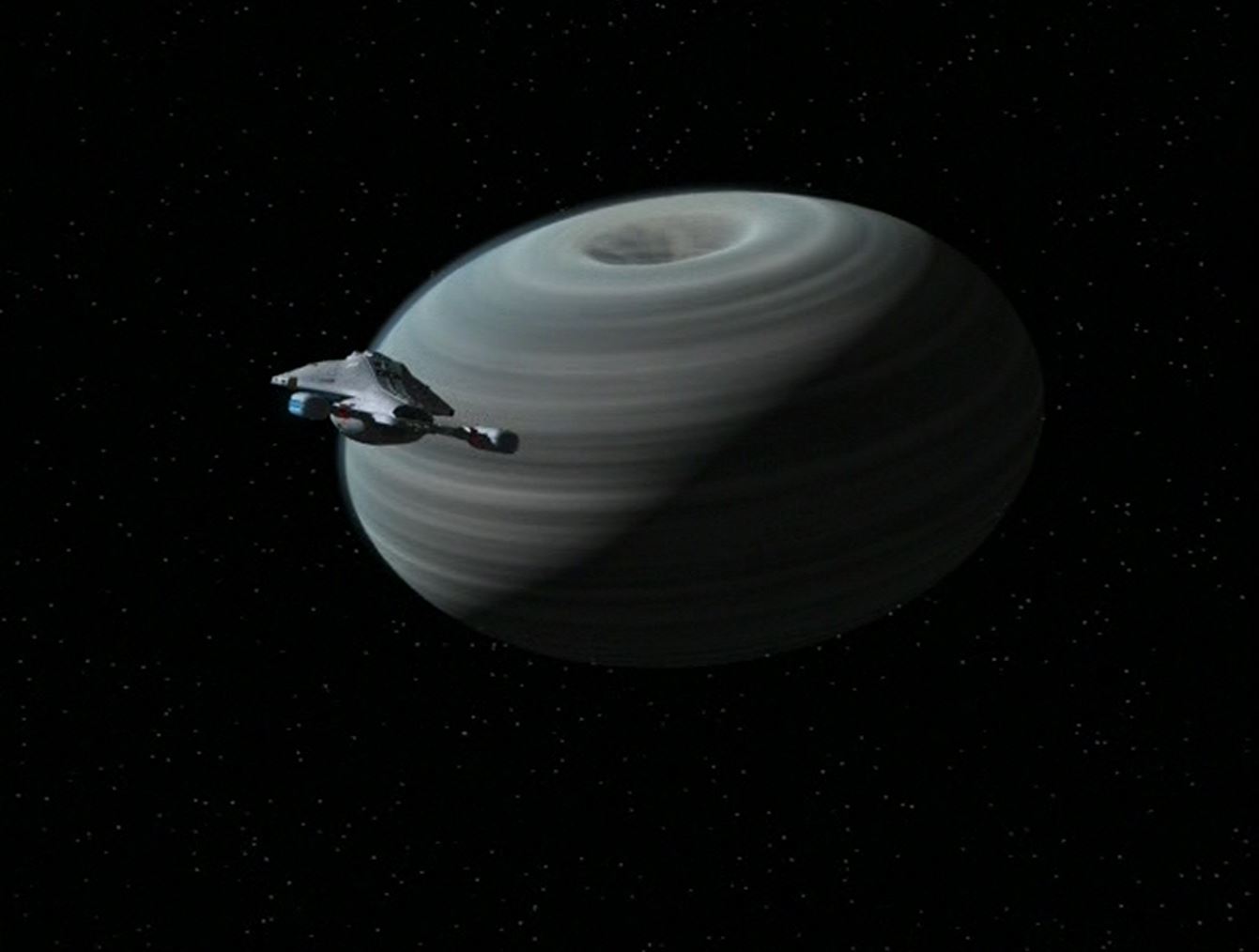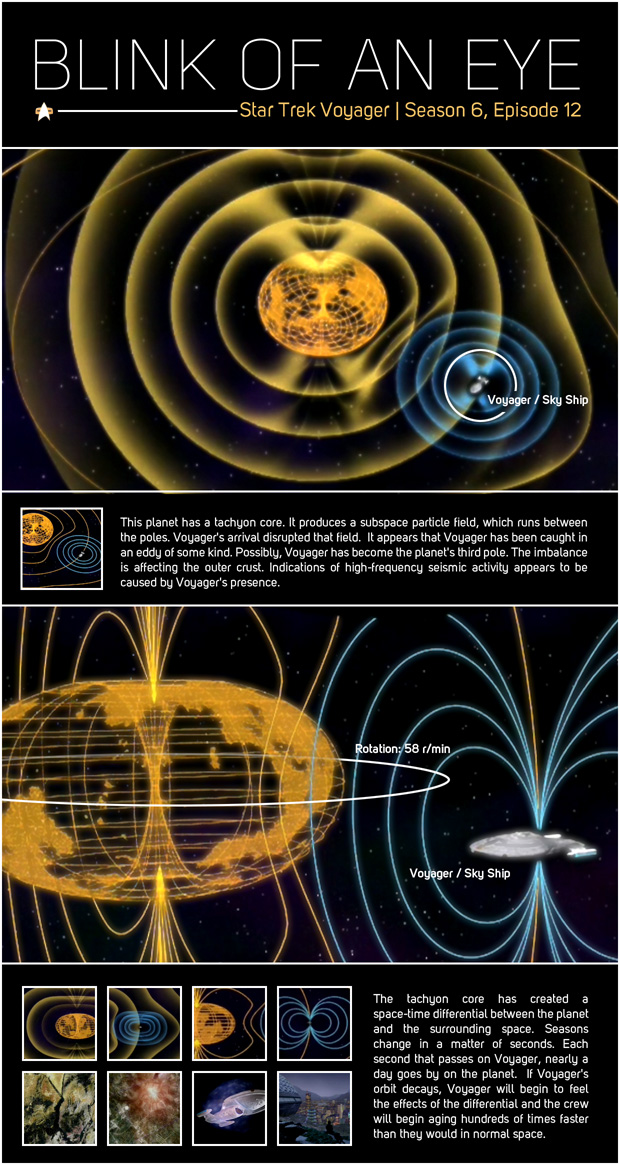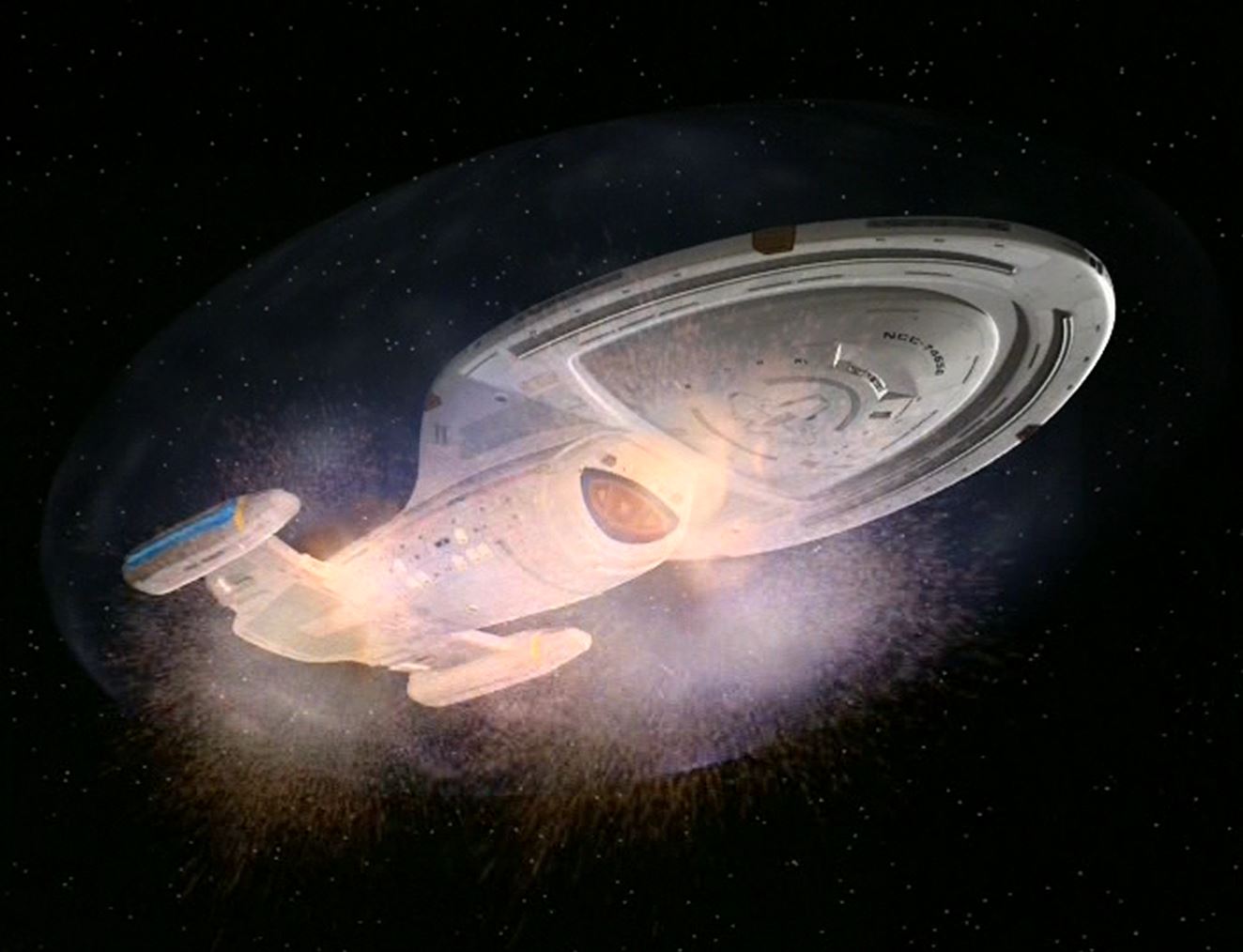Science fiction has a tendency to confront human nature by dropping familiar views of politics, civil understanding, and religion into a futuristic or otherworldly paradigm. Guess what? No matter what technology is at their disposal, people tend toward the same mistakes and problems. I am particularly interested in how science fiction portrays and wrestles with religious and theological paradigms. One of my favorite episodes to talk about with University students is Star Trek Voyager’s “Blink of an Eye” (Season 6, Episode 12).
The Episode
Blink of an Eye is about a primitive civilization whose belief that a bright flash of light in the sky was communication from a divine being influenced their technological and civil development.
The Voyager ship becomes trapped in a gravity pull around a planet, and because of a time field differential (gotta love sci-fi!), they are stuck. The primitive humanoid civilization sees the sudden appearance of a super bright star in the sky, accompanied by a massive earthquake. This all happens just as they are about to eat a particular fruit. They interpreted this as “fruit is forbidden.” The next generation altered the understanding to “eating fruit is bad fortune,” and the third dismissed it as mere superstition. The periodic earthquakes are attributed to the new ‘god’ watching over them, which inspires the names: “Ground Shaker” and “Light Bringer.”
Technological development in their civilization is motivated by the Light Bringer. Early developments consisted of prayer altars and places of worship. Then, the discovery of fire led to the creation of the hot air balloon as people tried to reach the Light Bringer. The drive to reach the Light Bringer is motivated by people who question their religious history and believe in a scientific explanation. Technology advances rapidly, creating internal combustion, strong telescopes to observe outer space, and sending radio transmissions. They discovered the Light Bringer was a Sky Ship. Sky Ship influenced more than technology. It became part of generational traditions of lore and children’s stories. Children had toy models of Sky Ship, and guardians used Sky Ship to keep children in line; it was an evil protector who would keep track of kids who needed to be punished. At the same time, prayers and lullabies featured Sky Ship.
Time passed more quickly for the planet than for Voyager in space. A hundred years on the planet were only hours on Voyager. So, while technology advanced in their name, the leaders aboard Voyager barely scratched the surface of their situation. In a way, they were truly like Gods. They came from a civilization where their technology could appear magical to a more primitive culture. They met as a Divine Council would meet, each with their own specialization, contributing to explaining the problem and working toward a solution. They are cognizant of the cultural needs of the people on the planet, and they consider the philosophical implications of contact and communication.



Teaching Sci-Fi and Religion
When I showed this episode to students in a class about film and religion, their comments covered a wide variety of observations and reflections. One commented on how our idea of what God looks like is shaped by traditions. Another reflected on how astounding it is that two people can interpret one event in such radically different ways. Some comments focused on the nature of humans to adapt religion to advancements in science and vice versa. This also led to discussions about how religion does not seem to find a “one size fits all solution” in any scenario.
Science fiction, and other types of fiction, provide a way of exploring humanity’s concerns in a time or place removed from the complications of our own lives. Fiction becomes a venue for discovering something about ourselves and our relationships with each other and the Divine.
Watch Blink of an Eye
Watch it for yourself to see what happens! Please comment or tag this blog to share your own findings and questions about religion in science fiction.
“Blink of an Eye” (S6.E12) directed by Gabrielle Beaumont, written by Gene Roddenberry, Rick Berman, and Michael Piller. Star Trek: Voyager, 2000.
If you are interested in reading more about religion and sci-fi, check out other blog posts about Sci-Fi. You may also be interested in reading my book, So Say We All: Religion, Spirituality, and the Divine in Battlestar Galactica. Also, check out Religion and Pop Culture Resources.

Dr. Erica Mongé-Greer, holding a PhD in Divinity from the University of Aberdeen, is a distinguished researcher and educator specializing in Biblical Ethics, Mythopoeia, and Resistance Theory. Her work focuses on justice in ancient religious texts, notably reinterpreting Psalm 82’s ethics in the Hebrew Bible, with her findings currently under peer review.
In addition to her academic research, Dr. Mongé-Greer is an experienced University instructor, having taught various biblical studies courses. Her teaching philosophy integrates theoretical discussions with practical insights, promoting an inclusive and dynamic learning environment.
Her ongoing projects include a book on religious themes in the series Battlestar Galactica and further research in biblical ethics, showcasing her dedication to interdisciplinary studies that blend religion with contemporary issues.